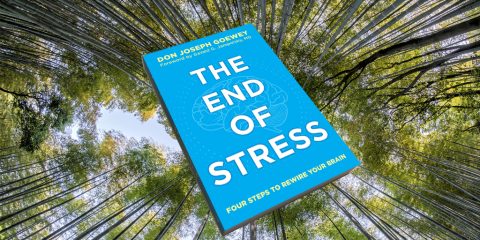The idea
Get a program to go from ‘easily stressed’ to ‘rarely stressed’.
Who will like this book
People who want to (1) reduce their stress level, (2) learn effective tools and (3) understand the usefulness of and the rationale behind these tools.
What we like about the book
- very good explanations (including insights in how the brain functions)
- insightful self assessments
- very practical tools
- a clear 2-month program for true impact
What you will learn in this book
A 4-step approach to better deal with what could be considered as stressful events
- Step 1: Build awareness: learn to notice stressful moments, identify what triggers them, and develop your vision of ‘a good day’
- Step 2: Develop empowering mindset: know how to develop inner calm and be ‘present in the moment’
- Step 3: Tap your brain’s full potential: get ways to tap in your creativity, leverage your strengths, connect with others, and reduce the feeling of ‘not being good enough’
- Step 4: Sustain ‘end-of-stress habits’ over time
Extracts
-
Stress may even be addictive. During an extreme stress response, the body naturally produces endogenous opioid peptides that mimic the effects of morphine and heroin.
-
Stress is psychological fear. It’s happening IN you, far more than TO you.
-
Psychological fear is the mind making up emergencies that the brain believes are real.
-
Fearless self-confidence is the attitude that can make your life your masterpiece, and it’s acquired by learning to be calm and clear inside regardless of what is happening outside.
-
Stress caused by how others view you is extremely powerful, as much or more so than those caused from … working too hard.
-
Self-acceptance is essential in becoming stress free because it is the path that leads away from shame.
-
Evidence is accumulating to suggest that our very thoughts are capable of extending cognitive and physical limits beyond anything science would have predicted.
-
The formula for neuroplasticity is “change your mind, change your brain, change your life”.
Don’t hesitate to contact us if you want guidance in Sustainable Peak Performance.
You can find this book on amazon and other online bookstores. Click on the image to shop:
TITLE: The End of Stress
AUTHOR: Don Joseph Goewey
Don Joseph Goewey is the managing partner of ProAttitude, a human performance firm focused on ending work stress. Previously, he managed the department of psychiatry at Stanford Medical School, directed a regional emergency medical services system, and worked closely with Carl Rogers, Ph.D., the father of humanistic psychology, and Gerald Jampolsky, M.D., who founded a school of psychology based on attitude.

